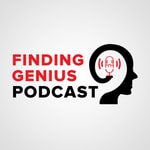University of Michigan Museum of Natural History Podcast – Details, episodes & analysis
Podcast details
Technical and general information from the podcast's RSS feed.

University of Michigan Museum of Natural History Podcast
University of Michigan Museum of Natural History
Frequency: 1 episode/73d. Total Eps: 29

Recent rankings
Latest chart positions across Apple Podcasts and Spotify rankings.
Apple Podcasts
🇩🇪 Germany - nature
02/03/2025#96🇩🇪 Germany - nature
01/03/2025#77🇩🇪 Germany - nature
28/02/2025#70🇩🇪 Germany - nature
27/02/2025#60🇩🇪 Germany - nature
26/02/2025#55🇩🇪 Germany - nature
25/02/2025#45🇩🇪 Germany - nature
24/02/2025#36🇩🇪 Germany - nature
23/02/2025#30🇩🇪 Germany - nature
22/02/2025#37🇩🇪 Germany - nature
21/02/2025#24
Spotify
No recent rankings available
Shared links between episodes and podcasts
Links found in episode descriptions and other podcasts that share them.
See allRSS feed quality and score
Technical evaluation of the podcast's RSS feed quality and structure.
See allScore global : 37%
Publication history
Monthly episode publishing history over the past years.
Pollinators
Episode 24
lundi 1 janvier 2024 • Duration 27:48
Pollinators play a vital role in our food systems and are crucial to preserving the areas across the world being threatened by climate change and industrialization, but it takes more than just planting flowers to protect our pollinators.
In this episode, Dr. Michelle Fearon will walk us through the basics of pollination and pollinator health, former U-M Horticulture Supervisor Bill Kronberg will explain how the University is engaging in pollinator health through its new Bee Campus USA certification, and Matthaei Botanical Garden’s Natural Areas Specialist Steven Parrish will speak on what you can do in your very own backyard. Join host Lindsay Gooch as she speaks with these industry professionals to uncover and understand the complex and incredibly interesting world of pollinator health.
Science Cafe: Extreme Science! Dark Matter and Dark Energy Research
Episode 23
jeudi 30 novembre 2023 • Duration 01:07:54
Sometimes scientists must go to the ends of the earth, and even deep underground, to see the unseen! Join us and meet two charismatic researchers from the U-M Department of Physics who do just that. Bjoern Penning studies dark matter a mile underground in the former Homestake gold mine in Lead, South Dakota, using Lux-Zeplin, the world's most sensitive dark matter experiment. Marcelle Soares Santos contributed to the construction of the Dark Energy Camera on a mountaintop in Chile, one of the largest telescope cameras in the world, which she now employs to search for gravitational wave-emitting collisions of neutron stars and black holes. Bring your physics questions for this exciting conversation!
Science Café: Politics and Psychology from Mussolini to the Alt-Right
Season 1 · Episode 12
mercredi 18 décembre 2019 • Duration 01:04:15
A discussion of the history and social psychology of nationalist and fascist politics and what light this scholarship may or may not shed on current events.
- Joshua Rabinowitz, lecturer, U-M Psychology Department
- Dario Gaggio, professor, U-M History Department
For more information on future Science Cafes, please visit our website.
Science Café: Designer Genes? Genetic engineering in the age of CRISPR
Season 1 · Episode 2
mercredi 18 décembre 2019 • Duration 01:05:19
New technology makes gene editing easier. Its use is being explored to correct diseases caused by genetic mutations, to fight cancer, and even to learn about human evolutionary adaptations, and its potential is amazing. We'll explore the capabilities and research that CRISPR Cas9 gene editing brings, as well as its ethical, legal, and social implications.
- Jody Platt, Assistant Professor in the Department of Learning Health Sciences at the U-M Medical School
- Daniel Thiel, doctoral student at the U-M School of Public Health and Department of Sociology
- Thom Saunders, Director of the U-M Transgenic Animal Model Core
For more information on future Science Cafes, please visit our website.
Science Café: Postcards from the Anthropocene
Season 1 · Episode 4
mercredi 18 décembre 2019 • Duration 01:05:19
Human beings have changed Earth so extensively that geologists now propose renaming our current epoch as the Anthropocene—the era defined by people. Human influences are apparent in the shape of landscapes, the extent of biodiversity, ocean chemistry, and our climate. We will explore the history of human influence on Earth and the ideas driving the concept of the Age of Humans, taking time to discuss consequences and implications for our future world.
- Julia Cole, U-M Department of Earth and Environmental Sciences
- Naomi Levin, U-M Department of Earth and Environmental Sciences
For more information on future Science Cafes, please visit our website.
Science Café: An Archaeology of Migration
Season 1 · Episode 5
mercredi 18 décembre 2019 • Duration 01:12:04
What are the stories of contemporary Latin American migration, and how do we uncover them? What can these stories tell us about borders, their impact, and the struggles of many families to find a new life? How can such stories inform policy and/or political action?
- Jason De Leon, U-M Department of Anthropology
For more information on future Science Cafes, please visit our website.
Science Café: What Cost, Basic Research?
Season 1 · Episode 6
mercredi 18 décembre 2019 • Duration 51:05
Basic science research seeks to improve our understanding of the world, without any direct, obvious application. Much of it is funded by government grants, including those from the National Science Foundation. That funding may soon face cuts. A discussion on how much we spend on such research, what the rationale is, and what the implications of such cuts might be.
- Meghan Duffy, Associate Professor of Ecology and Evolutionary Biology
- Kristin Koutmou, Assistant Professor, Department of Chemistry
For more information on future Science Cafes, please visit our website.
Science Café: Oil and Soil: The Forces of Climate Change
Season 1 · Episode 7
mercredi 18 décembre 2019 • Duration 01:06:57
A discussion on the politics of oil, water, and food production and how they are deeply intertwined with human-caused climate change and political upheaval, especially in the Middle East.
- Jennifer Blesh, Assistant Professor of Environment and Sustainability, U-M School for Environment and Sustainability
- Juan Cole, Professor of History and Director for U-M Center for Middle Eastern and North African Studies
Sponsored by Science for the People and MC²: Michigan & the Climate Crisis which is presented in conjunction with the Bicentennial LSA Theme Semester.
For more information on future Science Cafes, please visit our website.
Lecture: The Human Era: Living in the Anthropocene
Season 1 · Episode 8
mercredi 18 décembre 2019 • Duration 01:01:01
Today's geologic era—the Anthropocene—is dominated by human activity. In this talk, Ben van der Pluijm explored the impacts of a growing human population and our increasing needs for resources, such as food, water and energy, and solutions toward a thriving human society in this new era.
- Ben van der Pluijm, B.R. Clark Collegiate Professor, U-M Department of Earth and Environmental Sciences
For more information on future Science Cafes, please visit our website.
Science Café: Safeguarding Science: Expanding Access to Public Data
Season 1 · Episode 9
mercredi 18 décembre 2019 • Duration 01:12:04
A discussion with U-M faculty and librarians participating in the national DataRefuge project, which looks to preserve, organize, and increase access to publicly-funded research data.
- Jake Carlson, Research Data Services Manager, U-M Library
- Paul Edwards, Professor of Information, School of Information and Professor of History, College of Literature, Science, and the Arts
- Catherine Morse, Government Information, Law and Political Science Librarian
- Justin Schell, Director, Shapiro Design Lab, U-M Library
For more information on future Science Cafes, please visit our website.


